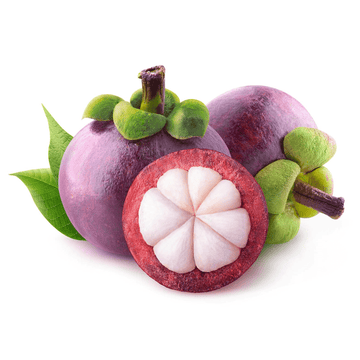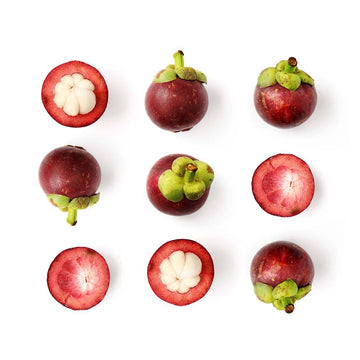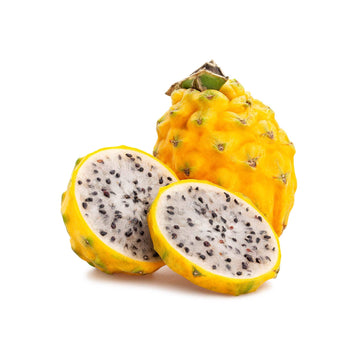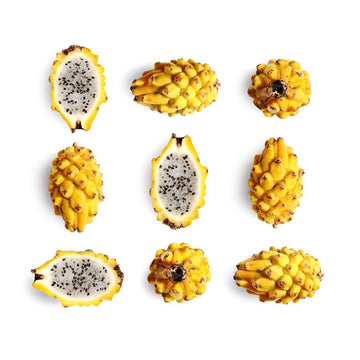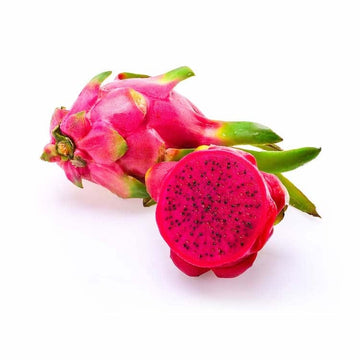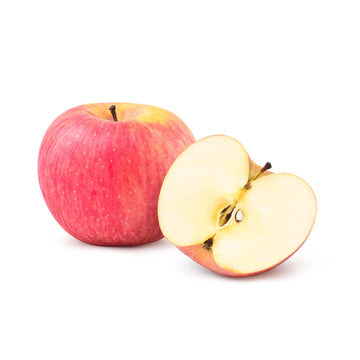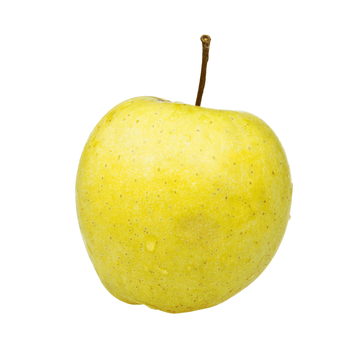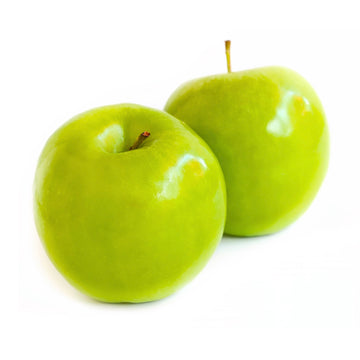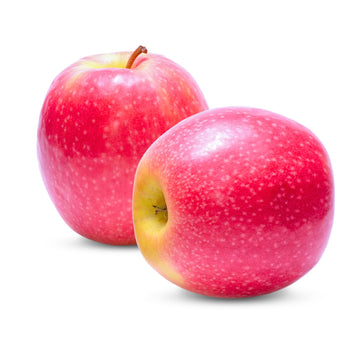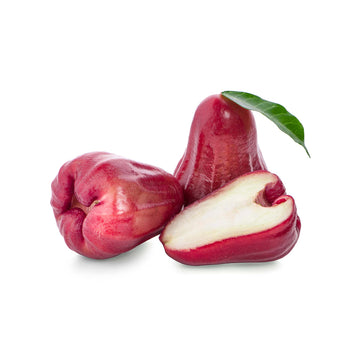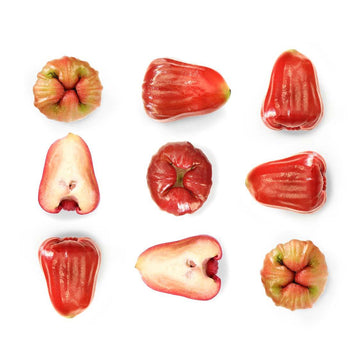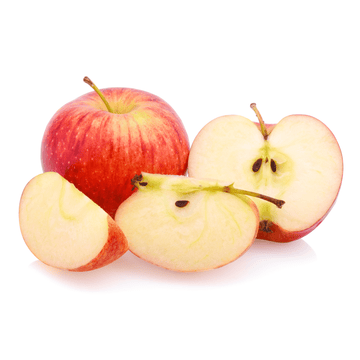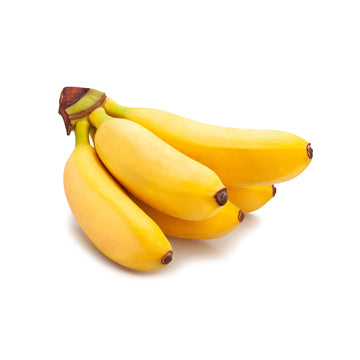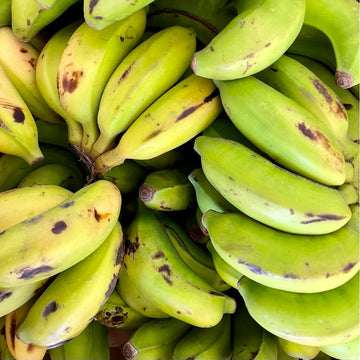The Best Fruits for Pregnant Women to Eat
Pregnancy is a time of increased nutritional needs, and a well-balanced diet plays a crucial role in ensuring both mother and baby stay healthy. Fruits are an essential component of a pregnancy diet because they provide essential vitamins, minerals, antioxidants, and fibre that support maternal health and fetal development.
This blog explores the key nutrients that pregnant women need, the potential consequences of deficiencies, and a list of 20 exotic fruits that are particularly beneficial during pregnancy.
Nutritional Needs During Pregnancy
Pregnant women require higher levels of several nutrients to support the growth and development of the baby. Some of the most crucial nutrients include:
-
Folic Acid (Folate): Essential for fetal neural tube development and reducing the risk of birth defects.
-
Iron: Helps prevent anaemia and supports increased blood volume.
-
Calcium: Necessary for the baby's bone and teeth formation.
-
Vitamin C: Boosts the immune system and enhances iron absorption.
-
Potassium: Regulates blood pressure and prevents muscle cramps.
-
Fibre: Aids digestion and prevents constipation, a common issue during pregnancy.
-
Antioxidants: Reduce inflammation and support overall health.
Consequences of Deficiencies
-
Lack of folic acid can lead to neural tube defects in the baby.
-
Iron deficiency increases the risk of preterm birth and low birth weight.
-
Inadequate calcium can affect fetal bone development and lead to maternal bone loss.
-
Low fibre intake can contribute to constipation and digestive discomfort.
20 Exotic Fruits That Are Beneficial During Pregnancy
1. Mango
-
Origin: South Asia
-
Flavour/Texture: Sweet, juicy, and fibrous
-
Benefits: Rich in vitamin C and folate, aiding immune support and fetal development.
2. Guava
-
Origin: Central and South America
-
Flavour/Texture: Sweet, slightly tart, grainy texture
-
Benefits: High in fibre, vitamin C, and folate, promoting digestion and immunity.
3. Pomegranate
-
Origin: Middle East and India
-
Flavour/Texture: Juicy, tart-sweet, with crunchy seeds
-
Benefits: Loaded with iron and antioxidants, supporting healthy blood circulation.
4. Papaya (Ripe Only)
-
Origin: Central America
-
Flavour/Texture: Sweet, soft, and buttery
-
Benefits: High in fibre and vitamin C, aiding digestion and immune function. (Avoid unripe papaya as it may trigger contractions.)
5. Dragon Fruit
-
Origin: Southeast Asia and Latin America
-
Flavour/Texture: Mildly sweet, soft, with tiny crunchy seeds
-
Benefits: Rich in fibre and antioxidants, helping digestion and reducing inflammation.
6. Chikoo (Sapodilla)
-
Origin: Mexico and Central America
-
Flavour/Texture: Caramel-like sweetness, grainy texture
-
Benefits: High in iron and energy-boosting natural sugars.
7. Jackfruit
-
Origin: South and Southeast Asia
-
Flavour/Texture: Sweet, banana-like, chewy
-
Benefits: Provides vitamin B6, which aids in reducing morning sickness.
8. Custard Apple
-
Origin: South America
-
Flavour/Texture: Creamy, vanilla-like
-
Benefits: Rich in fibre and vitamin C, supporting digestion and immunity.
9. Passion Fruit
-
Origin: South America
-
Flavour/Texture: Tart, fragrant, with crunchy edible seeds
-
Benefits: High in fibre and vitamin A, which supports vision and skin health.
10. Rambutan
-
Origin: Southeast Asia
-
Flavour/Texture: Juicy, lychee-like
-
Benefits: Rich in vitamin C and iron, aiding red blood cell production.
11. Lychee
-
Origin: China
-
Flavour/Texture: Juicy, floral, grape-like
-
Benefits: Boosts hydration and is rich in vitamin C.
12. Mangosteen
-
Origin: Southeast Asia
-
Flavour/Texture: Sweet-tart, soft, juicy
-
Benefits: Contains anti-inflammatory properties and vitamin C.
13. Camu Camu
-
Origin: Amazon Rainforest
-
Flavour/Texture: Extremely tart, often consumed in juice form
-
Benefits: One of the highest sources of vitamin C, supporting immunity.
14. Baobab Fruit
-
Origin: Africa
-
Flavour/Texture: Tangy, powdery pulp
-
Benefits: High in calcium, vitamin C, and fibre, supporting bone health and digestion.
15. Açaí Berry
-
Origin: Brazil
-
Flavour/Texture: Earthy, berry-like, creamy when blended
-
Benefits: Rich in antioxidants and healthy fats, promoting overall wellness.
Conclusion
Fruits provide an excellent way for pregnant women to meet their increased nutritional needs. Exotic fruits, in particular, offer a wide range of vitamins, minerals, fibre, and antioxidants that support both maternal and fetal health.
By incorporating a variety of these nutrient-rich fruits into their diet, pregnant women can ensure they receive essential nutrients, reduce pregnancy discomforts, and promote the healthy development of their baby.
For more information on exotic fruits and their benefits, visit exoticfruits.co.uk to explore a wide selection of nutritious options for pregnancy!

